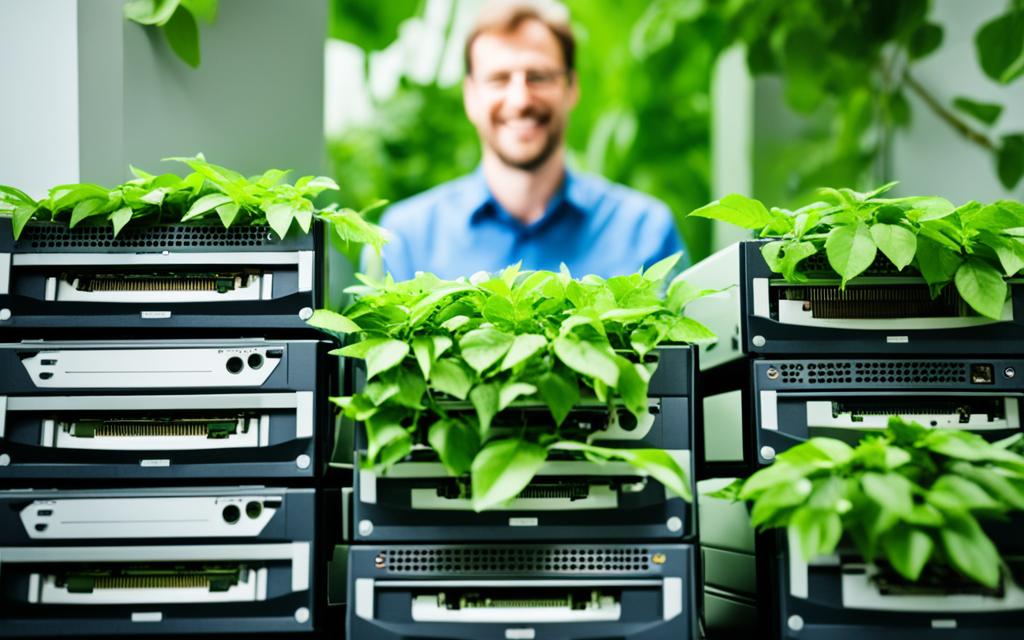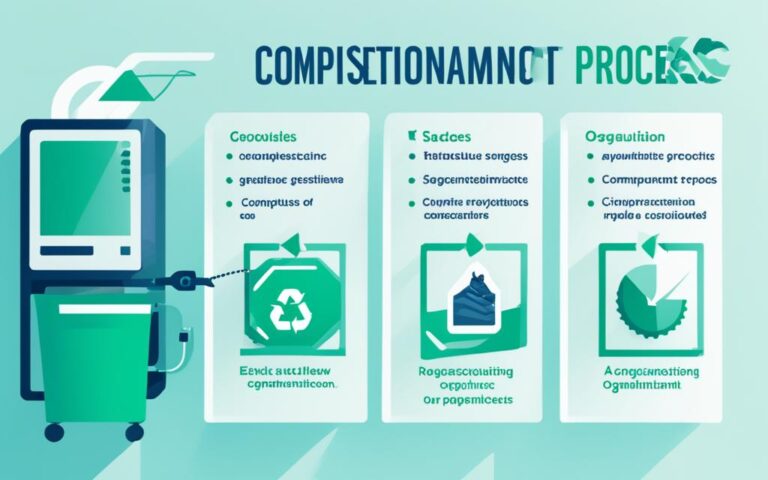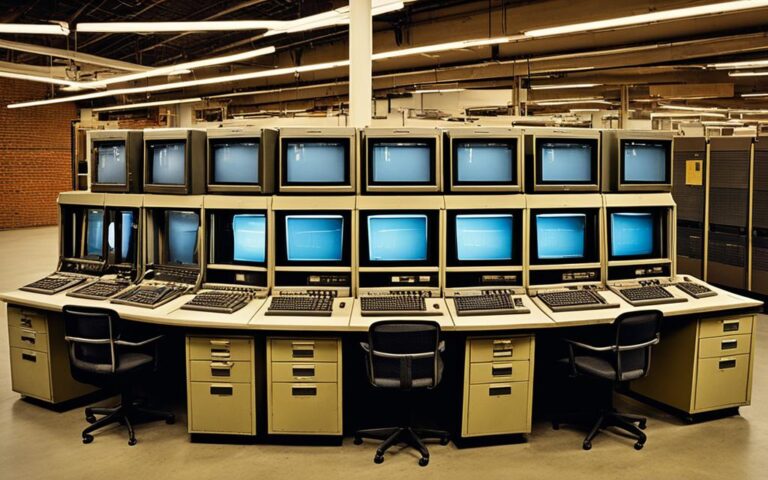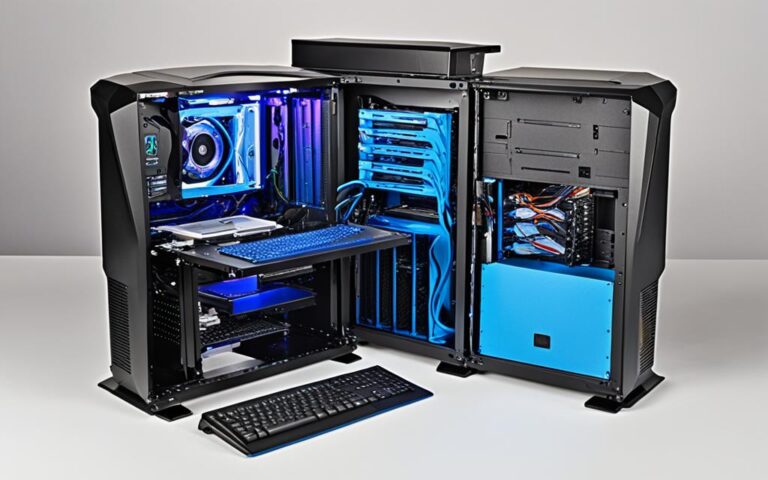The Ethics of Responsible Computer Reuse
The responsible reuse of computers is an important ethical practice that contributes to sustainability. Companies in the UK and worldwide are increasingly recognizing the environmental, social, and ethical impacts of technology use. It is essential to consider the entire technology lifecycle and implement ethical practices throughout.
A practical framework called the Responsible Computing Framework provides businesses with a blueprint to make their IT more green, ethical, trustworthy, and sustainable. This framework integrates environmental challenges such as energy consumption and emissions, as well as social and governance aspects. It addresses key pillars including data centers, infrastructure, code, data, systems, and impact.
By adopting ethical practices and responsible reuse, individuals and businesses can minimize waste, reduce their carbon footprint, and contribute to a more sustainable future. Let’s explore the environmental impact of electronic waste and ethical practices for reusing and recycling electronics.
The Environmental Impact of Electronic Waste
The improper disposal of electronic waste contributes to environmental issues. Globally, we produce 57 million tonnes of electronic waste each year, wasting precious metals and resources. To reduce our carbon footprint, it is important to extend the lifespan of electronics through reuse and repair. Many electronic items can be reused or repaired before they need to be discarded. By considering the emissions from both manufacturing and use, it becomes clear that replacing electronics before they break is not environmentally beneficial.
Repair shops and online resources provide opportunities for repairing electronic items. Recycling is also essential to ensure the proper disposal of electronic waste and the reuse of valuable materials.
“Properly disposing of electronic waste is essential for a sustainable future. By reducing, reusing, repairing, and recycling, we can minimize the environmental impact and conserve precious resources.” – Environmental Watchdog
Reducing the carbon footprint of electronic waste can be achieved by following these practices:
- Extend the lifespan of electronics through repair and reuse
- Properly dispose of electronic waste through recycling
Repairing electronic items not only extends their lifespan but also reduces the demand for new products. This means fewer resources are used in manufacturing processes, resulting in a lower carbon footprint. Additionally, repairing electronics helps to conserve valuable metals and materials that would otherwise be wasted.
Recycling electronic waste is crucial for proper disposal and resource recovery. Many components of electronic devices can be recycled and reused, reducing the need for new materials. Through recycling, precious metals such as gold, silver, and copper can be extracted and returned to the manufacturing process. This not only reduces the environmental impact of mining but also conserves valuable resources.
By adopting a circular approach to electronic waste management, we can promote sustainability and reduce the environmental impact of our technology consumption.
| Environmental Impact of Electronic Waste | Actions |
|---|---|
| Excessive waste generation | Reduce, reuse, recycle |
| Emissions from manufacturing new electronics | Extend lifespan through repair and reuse |
| Resource depletion | Recycle to recover valuable materials |
Ethical Practices for Reusing and Donating Electronics
When replacing electronic items, ethical practices involve selling or donating them instead of throwing them away. Selling electronics through reputable channels like eBay or electronics shops not only allows for the reuse of these items but also reduces waste. Price comparison websites can help find the best price for selling electronics.
Donating electronics to organizations or charity shops is another ethical option. Some groups even accept broken electronics, repairing them and distributing them to schools or community projects. Freecycle and Freegle platforms provide opportunities to give away or receive unwanted items for free. By engaging in these practices, individuals can contribute to reducing waste and promoting the reuse of electronics.
“By selling or donating our electronics instead of throwing them away, we can help reduce waste and give these items a new lease of life.” – Jane Smith, Environmental Activist
Benefits of Selling Electronics
Selling your electronics can have several benefits:
- Reduces electronic waste and landfill accumulation
- Allows someone else to benefit from your used electronics
- Provides an opportunity to recoup some of your investment
Donating Electronics to Charity
Donating electronics to charity is a meaningful way to give back while minimizing unnecessary waste:
- Supports organizations in need
- Enables schools and community projects to access technology
- Helps bridge the digital divide
Repair and Refurbish Electronics
Another ethical practice is to repair and refurbish electronics before considering disposal. By fixing minor issues and extending their lifespan, we can reduce the overall waste generated:
- Visit local repair shops or online platforms for repair services
- Consider DIY repair using online tutorials and guides
- Explore refurbishment programs offered by manufacturers
Utilizing these ethical practices contributes to the reduction of electronic waste, promotes the reuse of electronics, and supports a more sustainable future.
| Benefits of Ethical Practices | Selling Electronics | Donating Electronics | Repair and Refurbish Electronics |
|---|---|---|---|
| Reduces waste and landfill accumulation | ✓ | ||
| Provides financial return on investment | ✓ | ||
| Allows others to benefit from used electronics | ✓ | ||
| Supports organizations in need | ✓ | ||
| Enables access to technology for schools and community projects | ✓ | ||
| Reduces the environmental impact of electronic waste | ✓ |
Responsible Recycling of Electronics
When electronic items reach the end of their life, responsible recycling is crucial. Electronics should never be thrown in the bin due to the hazardous substances they contain. Recycling ensures that precious metals and other useful materials in electronics will be reused.
Retailers are legally obligated to take back electrical items for recycling, and many provide their own disposal services. Facilities for electronic recycling can be found using the Recycling Locator. Proper recycling not only prevents environmental harm but also supports the circular economy by recovering valuable resources from electronics.
In the UK, there are several dedicated electronic recycling facilities that ensure the proper handling of hazardous substances and the extraction of precious metals. These facilities use advanced technologies to safely dispose of electronic waste and recover valuable materials. By recycling electronics, we can protect the environment and conserve natural resources.
The Hazardous Substances in Electronics
Electronic devices contain hazardous substances that can harm the environment and human health if not properly disposed of. These substances include lead, mercury, cadmium, and brominated flame retardants. When electronics are disposed of incorrectly, these hazardous materials can leach into the soil and water, polluting ecosystems and posing a risk to wildlife and humans.
By recycling electronics, we can prevent the release of hazardous substances into the environment and minimize their negative impact on our planet.
The Reuse of Precious Metals
Electronic devices also contain valuable resources, such as precious metals, that can be recovered through recycling. Gold, silver, copper, and palladium are commonly found in electronics. These metals can be extracted and purified for reuse in the production of new electronic devices or other industries.
Recycling electronics not only reduces the need for mining and reduces waste but also conserves valuable resources.
| Benefits of Responsible Recycling | Hazards of Improper Disposal |
|---|---|
|
|
By responsibly recycling our electronics, we can contribute to a more sustainable future and help build a greener and cleaner environment.
Conclusion
Responsible computer reuse is an essential ethical practice that promotes sustainability and reduces waste. By extending the lifespan of electronics through repair, reuse, and recycling, individuals and businesses can significantly minimize their environmental impact. It is crucial to consider the environmental, social, and ethical aspects of technology use to ensure responsible practices.
One effective way to implement responsible computer reuse is by adopting the Responsible Computing Framework. This framework provides businesses with a practical blueprint to make their IT operations more green, ethical, trustworthy, and sustainable. It covers various pillars such as data centers, infrastructure, code, data, systems, and impact, ensuring a comprehensive approach to responsible computer reuse.
Furthermore, responsible recycling plays a vital role in minimizing the environmental harm caused by electronic waste. Instead of throwing away electronic items, recycling them ensures that valuable materials, including precious metals, can be reclaimed and reused. By engaging in responsible recycling, we support the circular economy, where resources are recovered and reused, contributing to a more sustainable future.
Responsible computer reuse should be a priority both in the United Kingdom and worldwide. By embracing ethical practices and adopting the Responsible Computing Framework, we can make a significant impact in reducing electronic waste, conserving resources, and promoting a greener and more ethical approach to technology use. Let’s strive for a sustainable future by embracing responsible computer reuse practices.
FAQ
What is responsible computer reuse?
Responsible computer reuse is the practice of extending the lifespan of electronics through repair, reuse, and recycling to minimize waste and reduce environmental impact.
Why is responsible computer reuse important?
Responsible computer reuse is important because it promotes sustainability by preventing electronic waste, minimizing the carbon footprint, and conserving valuable resources.
How can I extend the lifespan of my electronics?
You can extend the lifespan of your electronics by considering repair options before discarding them and by engaging in responsible recycling practices when they reach the end of their life.
Where can I sell my old electronics?
You can sell your old electronics through reputable channels like eBay or electronics shops. Price comparison websites can help you find the best price for selling electronics.
Can I donate my old electronics instead of throwing them away?
Yes, donating your old electronics to organizations or charity shops is an ethical option. Some groups even accept broken electronics, repair them, and distribute them to schools or community projects.
What should I do with electronic items that have reached the end of their life?
It is crucial to responsibly recycle electronic items that have reached the end of their life. Retailers are legally obligated to take back electrical items for recycling, and many provide their own disposal services.
How can I find facilities for electronic recycling?
You can use the Recycling Locator to find facilities for electronic recycling near your location. Proper recycling not only prevents environmental harm but also supports the circular economy by recovering valuable resources from electronics.













